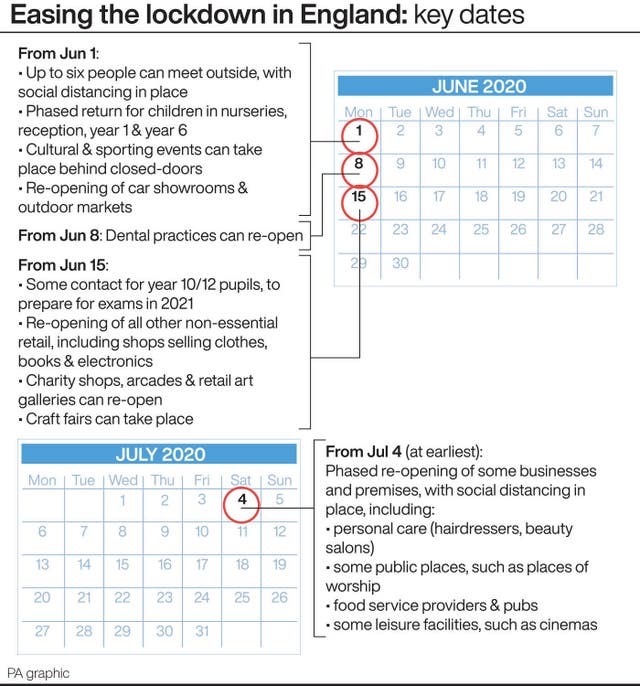
Changes to advice for extremely vulnerable people in England who have been shielding since the start of the coronavirus lockdown were not “rushed through”, the Health Secretary has insisted.
Matt Hancock said the Government had been working “for some time” to make sure that any changes made are small and “cautious”, amid criticism that the easing of restrictions came “out of the blue”.
More than two million people who have remained at home for the past 10 weeks due to the coronavirus risk have been able to venture out for the first time from Monday after the guidance was updated.
Mr Hancock told the daily Downing Street briefing: “It hasn’t been rushed through, far from it. We’ve worked for some time to make sure that any changes that we make and these are small, cautious changes, can benefit people in a safe way.
“We announced it at the weekend and I think that being able to make changes like this is important for people. It’s important for – especially for those who are shielded.”
He added: “Absolutely once we made the decision, including and in collaboration with all of the Government bodies, we then communicated that decision and this was the right time to be able to change that advice.”
Mr Hancock also said that one of the reasons they made the change was because the “rate of incidence of disease is now back down to the levels that it was before we introduced the shielding policy”.
The easing was announced late on Saturday and the guidance published late on Sunday, and came in the wake of criticism that the 2.2 million people shielding in England had been forgotten amid the easing of the overall lockdown.

It means those considered extremely vulnerable, who were sent letters and advised to stay indoors for three months, have now been told they can go outside with members of their household while continuing to follow social distancing guidelines.
Those who live alone can meet outside with one other person from another household, ideally the same person each time, also adhering to social distancing guidelines.
The extremely vulnerable category includes organ transplant recipients, people with specific cancers and people on immunosuppression therapies, as well as a number of other groups.
In Wales, those who have been shielding will be able to exercise outdoors for the first time since lockdown from Monday, and also be able to meet people from another household, but must not go into another house or share food.
But in Scotland and Northern Ireland, the most vulnerable are still being advised to stay at home.
The Government website said the update has been made “taking into account that Covid-19 disease levels are substantially lower now than when shielding was first introduced” and restated that the guidance is “advisory”.
Advice to the clinically extremely vulnerable will be reviewed as part of each review of social distancing measures for the wider population, the Government has said.
The next review of shielding measures will take place in the week beginning June 15, and Communities Secretary Robert Jenrick said depending on how things go, it could become more strict again.
Steven McIntosh, director of policy at Macmillan Cancer Support, said the decision was “a step forward” for a group who “have felt left behind and forgotten” as lockdown is eased for others in England.
Phil Anderson, head of policy at the MS Society, said people would “rightly want to hear a lot more about the scientific evidence showing this will be safe for them”, after a decision which he described as having “come out of the blue”.
Gemma Peters, chief executive of Blood Cancer UK, criticised the Government’s approach, saying: “The way it has announced this on a Saturday night, with no warning or consultation with charities and clinicians, has created confusion, and this adds to the impression already created that the shielding group isn’t high enough on its list of priorities.”
She said the charity is “urgently seeking clarity” from the Government on the advice and added: “Until we get it, we advise people to speak to their healthcare teams before making any changes.”


Comments: Our rules
We want our comments to be a lively and valuable part of our community - a place where readers can debate and engage with the most important local issues. The ability to comment on our stories is a privilege, not a right, however, and that privilege may be withdrawn if it is abused or misused.
Please report any comments that break our rules.
Read the rules here